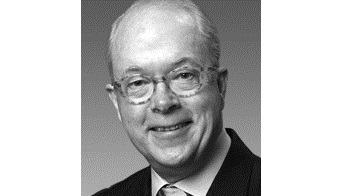Property and Human Flourishing

Presented by Professor Gregory S. Alexander, Robert Noll Professor of Law
In this seminar, Professor Alexander discussed his new book Property and Human Flourishing (OUP, 2018). Many people assume that what morally justifies private ownership of property is either individual freedom or social welfare, defined in terms of maximizing personal preference-satisfaction. This book offers an alternative way of understanding the moral underpinning of private ownership of property. Rather than identifying any single moral value, this book argues that human flourishing, understood as morally pluralistic and objective, is property’s moral foundation. The book goes on to develop a theory that connects ownership and human flourishing with obligations. Owners owe obligations to members of the communities that have enabled the owners to live flourishing lives by cultivating in their community members certain capabilities that are essential to leading a well-lived life. These obligations are rooted in the interdependence that exists between owners and their community members, a condition that is inherent in the human condition. Obligations have always been inherent in ownership. Owners are not free to inflict nuisances upon their neighbors, for example, by operating piggeries in residential neighborhoods. The human flourishing theory explains why owners at times owe obligations that enable their fellow community members to develop certain necessary capabilities, such as health care and security. This is why, for example, farm owners may be required to allow providers of health care and legal assistance to enter their property to assist employees who are migrant workers. Moving from the abstract and theoretical to the practical, this book considers implications for a wide variety of property issues of importance both in the literature and in modern society. These include questions such as: When is a government’s expropriation of property legitimated for the reason it is for public use? May the owner of a historic or architecturally significant house destroy it without restriction? Do institutions that owned African slaves or otherwise profited from the slave trade owe any obligations to members of the African-American community? What insights may be gained from the human flourishing concept into resolving current housing problems like homelessness, eviction, and mortgage foreclosure?
Professor Gregory S. Alexander, an internationally renowned expert in property law and theory, has taught at Cornell Law School since 1985.
Following his graduation from Northwestern University School of Law, he clerked on the U.S. Court of Appeals for the Sixth Circuit. After a year as a Bigelow Fellow at the University of Chicago Law School, Alexander became a professor at the University of Georgia School of Law, where he remained until coming to Cornell. Professor Alexander has been a Fellow at the Center for Advanced Study in the Behavioral Science, in Palo Alto, California and at the Max-Planck-Institutes for Comparative Law, in Hamburg and Heidelberg, Germany. He has taught at UCLA, Virginia, and Harvard Law Schools, and was the Herbert Smith Distinguished Visiting Fellow at Cambridge University.
Professor Alexander is a prolific and recognized writer, the winner of the American Publishers Association's 1997 Best Book of the Year in Law award for his work, Commodity and Propriety. His other books include The Global Debate Over Constitutional Property: Lessons for American Takings Jurisprudence (Chicago), Community & Property (with Eduardo Peñalver) (Oxford), and Properties of Property (with Hanoch Dagan) (Aspen). His most recent book is An Introduction to Property Theory (with Eduardo Peñalver) (Cambridge).